The Interconnected Landscape: Funders Forum on Land, Justice, and Climate
Program Details
Funders
In person
Members: $50
Nonmembers: $75
Zoom
Members: $25
Nonmembers: $50
Join us for an engaging forum designed for Maine’s philanthropic community to explore the critical intersections of land conservation, justice, and climate action. This convening serves as a follow-up to discussions on land return and justice over the last year and is designed to provide a space for funders to learn, advance the conversation, and connect. Through insightful presentations from key leaders in the field, attendees will gain a comprehensive overview of current initiatives, including the ambitious Maine Won’t Wait goal of conserving 30% of Maine’s land by 2030, the vital work of the Wabanaki Commission on Land and Stewardship, and the Wildlands, Woodlands, Farmlands & Communities vision for protecting 80% of New England as forests and farmlands by 2060. Presenters and attendees together will explore the interconnectedness of these issues with climate change and the importance of inclusive, equitable practices in land stewardship.
The convening aims to broaden understanding of the pressing challenges and opportunities facing land conservation efforts in Maine, while providing pathways for deeper philanthropic engagement and collaboration. Sector leaders will engage in a moderated discussion followed by an open invitation for questions and conversation from attendees.
Speakers
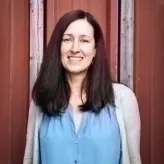
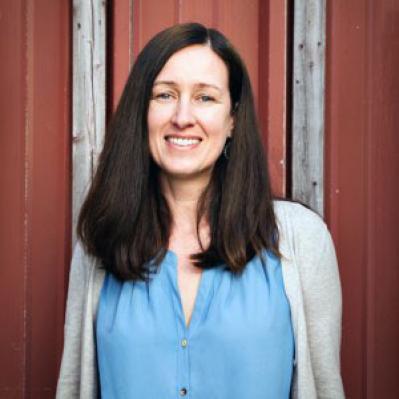
Amanda Beal
Amanda has served as the Commissioner of the Maine Department of Agriculture, Conservation and Forestry (DACF) since 2019. DACF is charged with: promoting and advancing Maine's agricultural resources; protecting and enhancing nearly 18 million acres of forestland; managing more than 700,000 acres of state parks and public lands; and administering numerous science-based programs focused on resource management, land use planning, and conservation. Before leading DACF, Amanda was the president and CEO of Maine Farmland Trust.
Amanda serves as a Maine Climate Council member and co-chairs the Council's Natural and Working Lands working group. She also currently serves as an executive committee member on the board of directors of the National Association of State Departments of Agriculture, as president of the Northeast Association of State Departments of Agriculture, and as board president of Food Export Northeast.
Amanda earned a B.A. from the University of Southern Maine and an M.S. from Tufts University, having completed the Agriculture, Food & Environment program with a specialization in the convergence of natural resource policy and food security. Amanda grew up on her family's commercial dairy farm in Litchfield, Maine, and now lives in Warren, Maine, where she and her husband own a 35-acre farm.
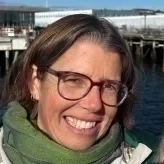
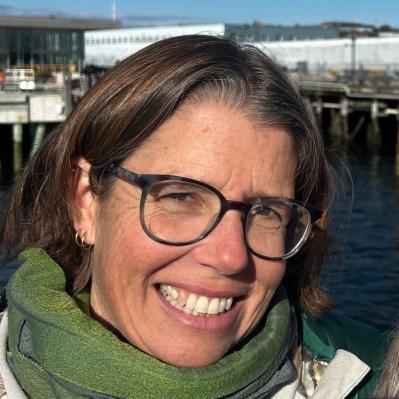
Jessica Burton
ess Burton is a weaver, connecting people, ideas, and resources to build a better world. She is the founding Executive Director of Momentum Conservation and has overseen the organization’s growth and development. Since 2023, Momentum has been acting as an intermediary organization in partnership with the Onion Foundation, using a participatory grantmaking process to give operational grants to land trusts in Maine. In addition to her work with individual conservation organizations around the state, she is on the advisory committee for the 2025 Maine Philanthropy Conference and she is a Delegate on the First Light Conservation Community Delegation. She is also an active member of the working group to support the Wabanaki Commission’s fund "Let us take good care of what has been returned" and a member of the fundraising team for Journey ONEderland’s effort to find and acquire land for their Center. Jess grew up in New York City, ancestral land of the Lenape, and was born with an innate connection to nature and to being outside. She lives on Peaks Island with her husband Ponch Membreño, her daughters, and 2 dogs. Jess loves big ideas and is re-learning how to imagine that which has not existed yet.
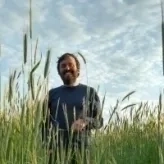
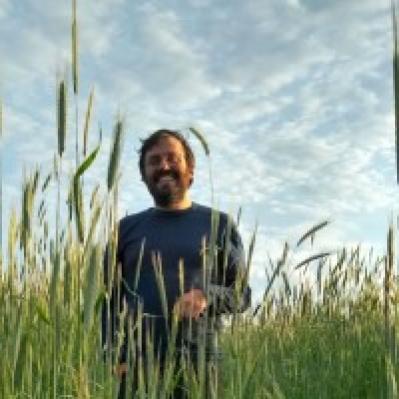
Alex Redfield
Alex is the Co-Director of the Northeast Integrated Policy Program at Food Solutions New England and Wildlands, Woodlands Farmlands and Communities, where he works with colleagues and partner organizations to amplify policy solutions towards building a better relationship with our shared landscape.
Alex’s work over the past fifteen years has centered on challenging the dominant political paradigm through food and land justice to better serve rural communities, farmers of color, and agricultural producers seeking to prioritize climate and racial justice in the construction of their enterprises. After farming in rural Maine, downtown Toronto, and southern New Hampshire, he spent six years at Cultivating Community, first as Director of Farmer Training for the New American Sustainable Agriculture Project and subsequently as the organization’s co-director. He also served as Farm Viability and Farmland Protection Specialist for the Maine Department of Agriculture, Conservation and Forestry – where his work included launching the Working Farmland Access and Protection Program and co-chairing the Maine PFAS Fund’s Land Acquisition Committee.
He lives in South Portland, ME with his wife, Hillary, and his two daughters, Hattie and Bea, where they continue to challenge their neighbors’ patience with unruly garden experiments.

Frances Soctomah
Frances Soctomah (she/her) is a Passamaquoddy citizen from Motahkomikuk (Indian Township) with nearly ten years of experience working with Wabanaki-led nonprofits. Rooted in community, she dedicates herself to strengthening connections to Wabanaki cultural traditions, ways of knowing, and homelands. As a descendent of many generations of Passamaquoddy artists and an artist herself, Frances often weaves teachings from Wabanaki arts practices to strengthen these connections.
In her role as Collaborative Fund Manager at the Wabanaki Commission on Land & Stewardship, she manages the Wolankeyutomonue Kisi Apaciyewik (“Let’s Take Good Care of What has Returned”) Fund. The purpose of the fund is to support direct and unrestricted grants to Wabanaki tribal governments, nonprofits, and individuals to repair, rebuild, and sustain Wabanaki relationship, kinship, access to place, and to directly help Wabanaki people and institutions to fulfill their care-taking responsibilities of lands and waters across Wabanaki Traditional Territory, in what is now known as Maine.
Prior to this role, she served as co-executive director of Nibezun where she focused her leadership on revitalizing traditional arts, ceremony, language, and sustainable lifeways practices in Wabanaki communities.